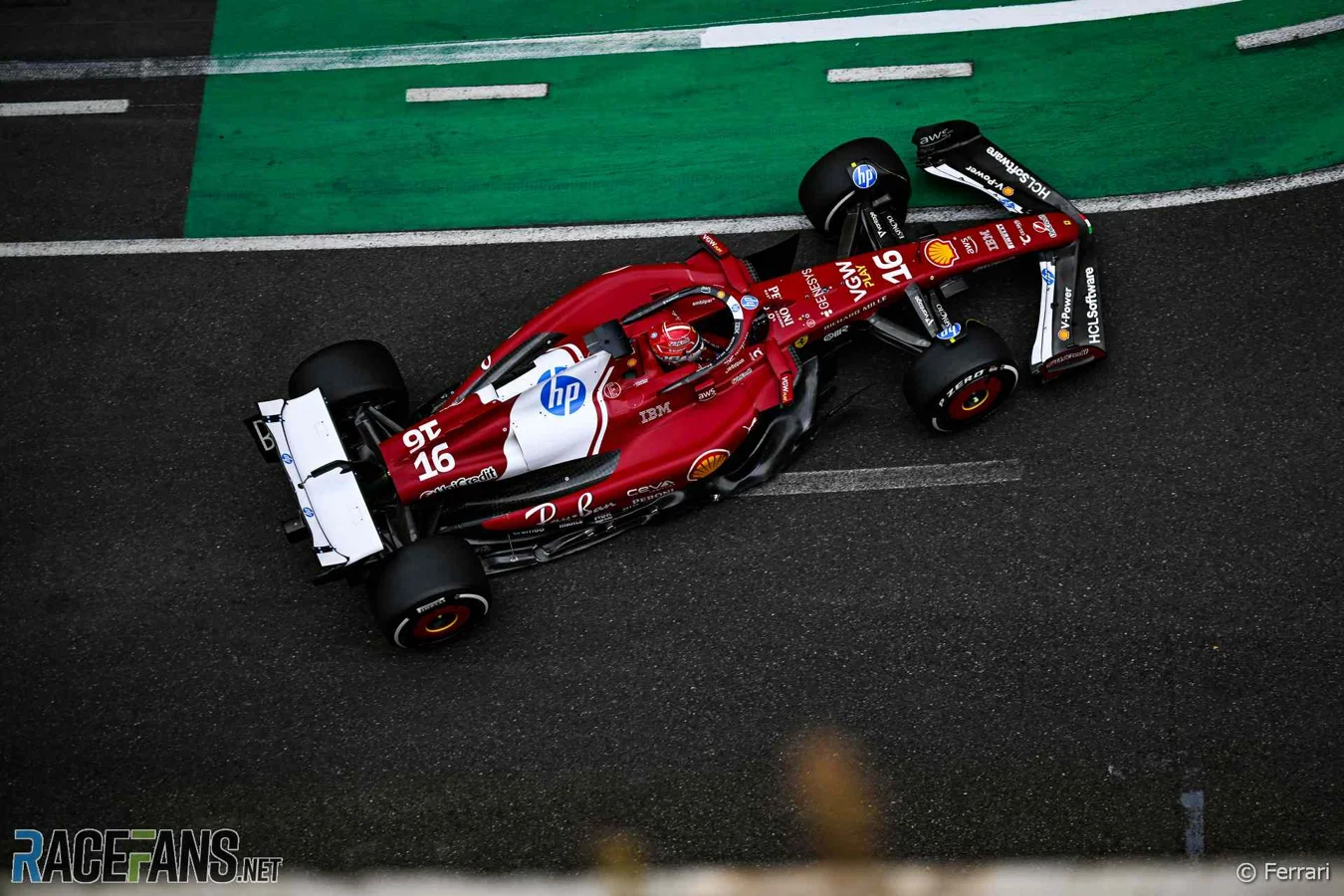Ferrari has launched an investigation into an engine issue that hindered Charles Leclerc’s performance during the Azerbaijan Grand Prix. The problem, which surfaced early in the race, prevented Leclerc from advancing through the field effectively from his tenth-place starting position.
Leclerc ultimately finished ninth, behind his teammate Lewis Hamilton, marking another disappointing result for Ferrari in a season filled with challenges. The power unit problem was a key factor limiting his ability to compete for higher positions at the Baku circuit.
Details on the Engine Complication Affecting Leclerc
Charles Leclerc disclosed that his car suffered an intermittent power unit malfunction lasting about ten laps in the opening stint. The issue caused a significant loss of straight-line speed, leaving him stuck behind slower cars and unable to take advantage of overtaking opportunities.
“Unfortunately, I had a quite big power unit issue for like 10 laps in the first stint, and we don’t really know what is the reason for that yet because it kind of came back from one lap to the other and we don’t know what happened,”
Leclerc said.
“So I need more info about that. It’s not like it’s been there for the whole race, so then I was fine towards the end, but in the phase where I think we probably had the chance to actually overtake cars, I was just stuck in the DRS and very slow down the straight, so I couldn’t do much in that first phase after that.”
Despite this setback in Baku, Leclerc remains hopeful that the warmer conditions expected at the upcoming Singapore Grand Prix will better suit Ferrari’s car performance. He suggested that cold weather had negatively impacted Ferrari’s competitiveness compared to rivals like Mercedes.
“I think our car is struggling quite a bit whenever it’s cold, and we have seen that the Mercedes is performing very, very strongly whenever it’s cold,”
Leclerc remarked.
He added that Ferrari’s strengths tend to emerge in hotter conditions and expressed optimism about their prospects in Singapore.
“We are stronger in hot conditions, which I hope Singapore will give us that.”
Team Reaction and Analysis from Ferrari
Ferrari team principal Fred Vasseur expressed dissatisfaction with the ninth and eighth-place finishes by the team’s drivers. He noted that their start from behind competitors like Lando Norris set the tone for their final positions on the challenging track.

“We cannot be satisfied with eighth and ninth. We started behind Norris, and we finished behind him, which is the reality of this track,”
Vasseur stated.
He confirmed that the engine issue on Leclerc’s car, though marginal, was sufficient to prevent overtakes on the straights, specifically holding him behind Logan Lawson during the race. Vasseur admitted this limited performance hampered their ability to maximize results despite the car’s pace.
“We had an issue with Charles’ engine, which we will now investigate, and even if it was marginal, it was enough to prevent him from being able to overtake in a straight line, which explains why we were stuck behind Lawson.”
Reflecting on the weekend, Vasseur pointed to qualifying as the main missed opportunity for the team, explaining that their pace suggested they could have achieved a stronger starting position and subsequent race result.
“The main regret is for qualifying, because we had the pace to do a much better job, and that’s where the weekend got away from us.”
He recognized improvements in performance following the Spa race but admitted Ferrari’s execution, including some poor decisions and errors, prevented a better outcome at Baku.
“It’s encouraging that the pace was there, but frustrating that we did not capitalise on it because you have two parts of the job: one is pure performance, and the other is your execution.”
“In terms of performance, we made a step forward after Spa, but to be P10 and P12 yesterday was not what we expected. Now we need to understand what we could have done better, because we made some mistakes and some poor choices.”
Vasseur also highlighted that although Leclerc accepts responsibility for the qualifying result, the team must improve its overall execution moving forward.
“I know Charles is accepting the responsibility for qualifying, but we need to work on our execution to come back stronger.”
When pressed for details on the engine complication, Vasseur declined to specify the technical nature of the problem but reiterated its impact.
“Charles had the issue on the engine, it was not five times, but it was enough to spend your week behind someone and not being able to overtake,”
he said.
“Then the cost is that on the engine, you are losing the two-tenths plus the gap with the car in front of you, and for Charles, it was a lot, I think.”
What the Future Holds for Ferrari and Leclerc
The Azerbaijan Grand Prix exposed how a small mechanical flaw can drastically affect both race strategy and outcome for Charles Leclerc and Ferrari. With the team committed to understanding and resolving the engine issue, expectations are focused on improved reliability and performance in the upcoming races.
Leclerc’s experience also reveals the critical role of qualifying in establishing competitive advantage, an area Ferrari aims to enhance after a subpar start in Baku. The prospect of racing in warmer climates like Singapore offers hope for a turnaround, aligned with the team’s known strengths in heat.
As Ferrari investigates the causes behind Leclerc’s engine troubles, the response will be critical for their championship ambitions amid a tightly contested Formula 1 season.
